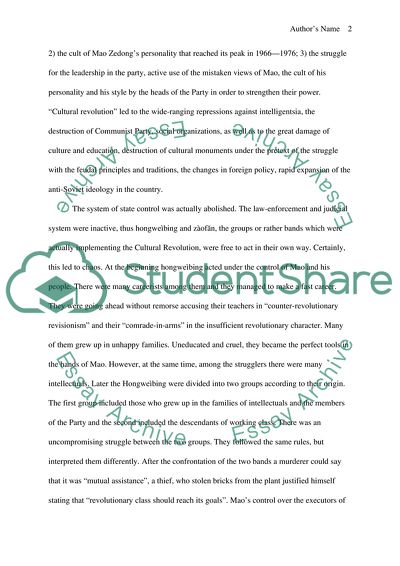Cite this document
(The Reflection of the Historical Events in the Movie To Live (1994) Review Example | Topics and Well Written Essays - 1750 words - 1, n.d.)
The Reflection of the Historical Events in the Movie To Live (1994) Review Example | Topics and Well Written Essays - 1750 words - 1. https://studentshare.org/history/1805224-chinese-history-and-culture-analysis
The Reflection of the Historical Events in the Movie To Live (1994) Review Example | Topics and Well Written Essays - 1750 words - 1. https://studentshare.org/history/1805224-chinese-history-and-culture-analysis
(The Reflection of the Historical Events in the Movie To Live (1994) Review Example | Topics and Well Written Essays - 1750 Words - 1)
The Reflection of the Historical Events in the Movie To Live (1994) Review Example | Topics and Well Written Essays - 1750 Words - 1. https://studentshare.org/history/1805224-chinese-history-and-culture-analysis.
The Reflection of the Historical Events in the Movie To Live (1994) Review Example | Topics and Well Written Essays - 1750 Words - 1. https://studentshare.org/history/1805224-chinese-history-and-culture-analysis.
“The Reflection of the Historical Events in the Movie To Live (1994) Review Example | Topics and Well Written Essays - 1750 Words - 1”. https://studentshare.org/history/1805224-chinese-history-and-culture-analysis.


